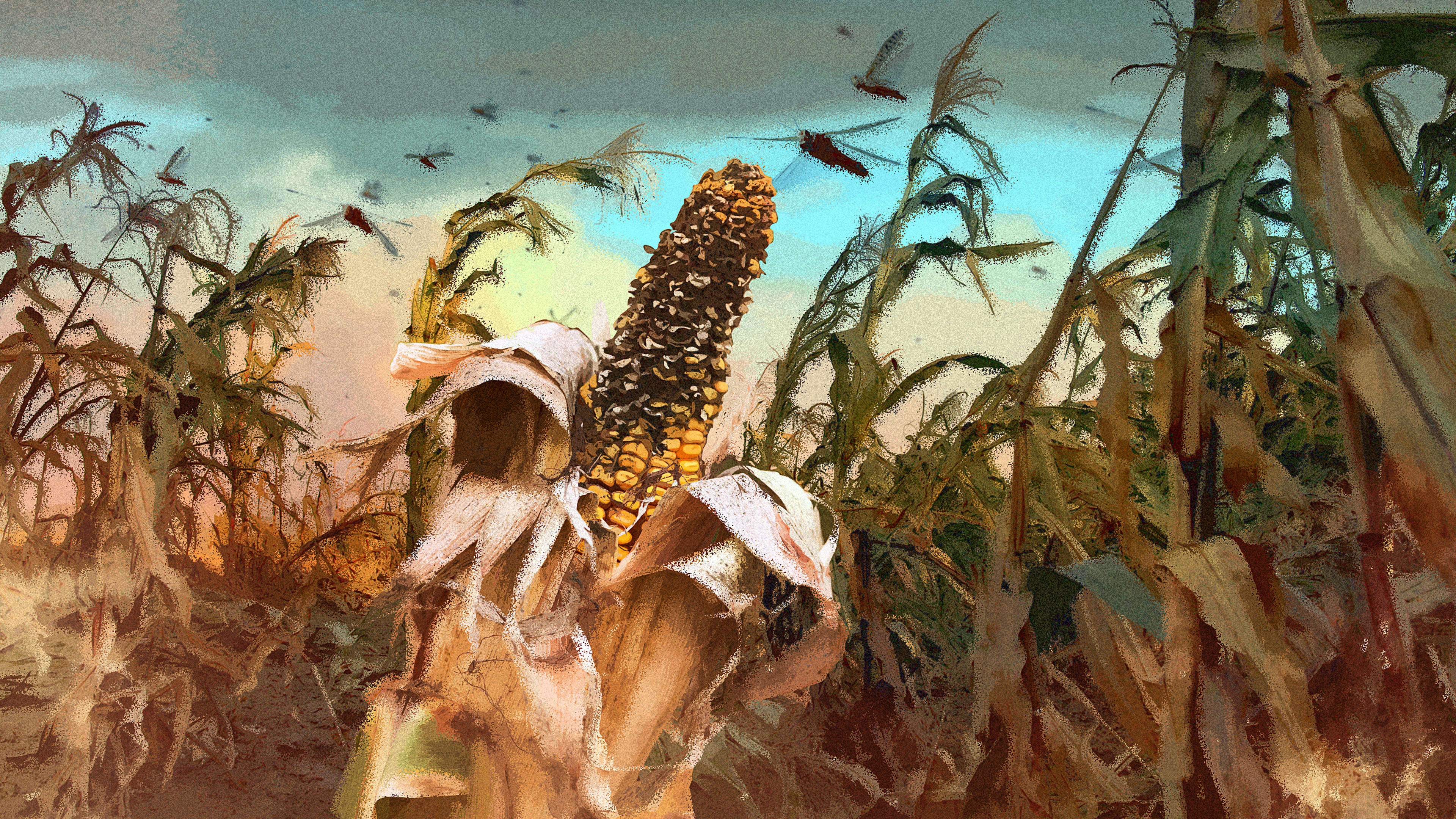For decades before COVID-19, scientists warned that a pandemic was inevitable and urged preparation, but governments around the world did very little. When it arrived, COVID-19 laid bare the fragility of many of our systems—including global food supply chains. It also showed how scientists can mobilize quickly to solve a huge vulnerability.
Across farms worldwide, there are now warning signs of a pandemic in food crops. More than 600 pest species have developed some form of resistance to pesticides, which causes $10 billion in losses in the United States alone each year. Climate volatility intensifies these threats, and many crops are already suffering—citrus blight and banana fungus wreak havoc for growers and supply chains. With global food supplies vulnerable and food prices at their highest in almost a decade, a plant pandemic could push more people into poverty and cause social unrest.
The agricultural industry must harness the urgency with which scientists responded to COVID-19 to get ahead of a full-blown crop pandemic. Here’s what that would look like.
Innovate to solve farmers’ future problems now
Agricultural research and development pipelines are long: it takes an average of 10 to 12 years for scientists to discover and develop new products that will help farmers protect their crops from emerging pests, weeds and diseases.
Growers around the world can’t afford to wait a decade for solutions to the problems they face. Historic droughts in the American West could wipe out a tenth of the San Joaquin Valley’s acreage for agricultural production in the coming years. In Ecuador, a fungus outbreak threatens the banana crop on which 17% of Ecuadorians’ livelihoods depend. Climate change will worsen these problems: as global temperatures rise, pests will emerge in new geographies and new diseases will infect crops.
The agricultural industry can develop solutions now by investing in cutting-edge technologies and prioritizing safety in their design. For example, CRISPR—which could revolutionize human healthcare—will play a key role in crop health too. Scientists are already using gene editing to develop more resilient seeds and plants that can sequester more carbon. Other technologies that originated in pharma, like targeted protein degradation, also have promising applications in agriculture, from helping control weeds to addressing how intrusive plants are becoming resistant to current agricultural methods. Tech governance should strike a balance between prioritizing safety and supporting these innovations, not dampening them. New technologies designed with safety in mind will meet regulatory standards sooner and get into growers’ hands faster.
Take a page from healthcare’s playbook
Just as the scientific community tackled COVID-19 with a toolkit of treatments, vaccines, and preventative measures, the ag industry can develop a set of safe, effective resources with which growers can rapidly respond to emerging threats.
This is already happening: just as the Food & Drug Administration granted emergency use authorization (EUA) of COVID-19 vaccines, the Environmental Protection Agency has granted EUA to treat plant diseases like allowing chemical fungicides for use against coffee rust in Hawaii. Stopgap measures like these prevent existing problems from getting worse, but they can also force growers to use older, more toxic ingredients because there are no other options available.
Healthcare innovation offers a model to tackle that challenge, too. In the past few decades, the pharma industry has leaped ahead using a highly targeted approach to drug discovery. It has changed disease treatment: cancer drugs once destroyed everything in their path—now they target specific cells with greater precision and increased patient safety. By adopting this targeted approach, agriculture can undergo the same transformation, moving from a “spray and pray” R&D approach built on trial and error toward more selective, effective and safer solutions.
Build consumer trust through transparency
During the pandemic, unclear communication from health authorities and misinformation led to widespread distrust of COVID-19 vaccines. As a result, the U.S. is still struggling to contain the virus even though vaccines are available to almost everyone.
The agricultural industry has faced similar challenges. Its lack of transparency with consumers about concepts like organic farming and GMOs have led to misunderstanding and distrust with serious consequences. Some organic farms are causing more environmental harm than good, and the backlash against GMOs has undermined progress toward more resilient crops.
Rebuilding consumers’ confidence in its innovations requires the ag industry to trust that the public can handle the facts. That means sharing more information on the safety and environmental impacts of its practices than regulators require. For instance, ag companies can explore using blockchain to track and transparently share supply chain information. Currently, President Biden is pushing for food labels with clearer supply chain information about the origins of not only where meat is processed, but where it was raised.
Companies should also translate complex science into ideas that a layperson will understand and care about. Impossible Foods has done this effectively, capturing consumers’ interest on how a plant-based burger can taste like meat. Tools like gene editing and selective chemistry can help stave off a plant pandemic, but they will only work if consumers understand them and the agricultural industry is transparent about their safety and effectiveness.
Many governments missed their opportunity to fully prepare for and quickly respond to COVID-19 despite scientists’ warnings. The agricultural industry doesn’t have to make the same mistake with a plant pandemic. We can get ahead of it by harnessing emerging technologies, drawing from healthcare innovations, and rebuilding consumer trust. Failure to do so would devastate growers, consumers, and economies.
Jacqueline Heard is the CEO and founder of Enko.
Recognize your brand’s excellence by applying to this year’s Brands That Matter Awards before the early-rate deadline, May 3.
